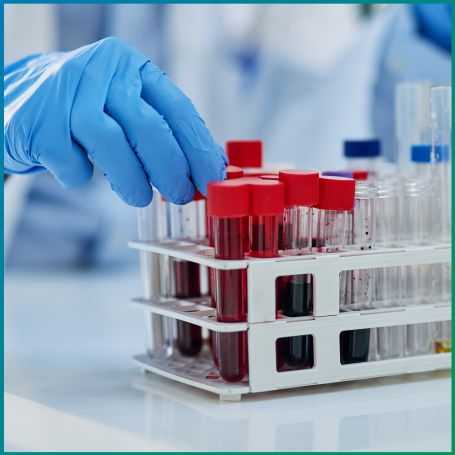
The Bilirubin Test, which measures both total bilirubin and direct bilirubin levels, is crucial for assessing liver function and diagnosing various medical conditions.

Bilirubin is a yellow pigment formed during the breakdown of red blood cells, and it plays a significant role in the body’s metabolic processes.
Bilirubin is a substance produced when the body breaks down old red blood cells. It travels to the liver, where it is processed and eventually excreted in bile. The bilirubin test provides insights into liver health and helps detect conditions such as liver disease, bile duct obstruction, and hemolytic anemia.
Total Bilirubin: This measures all forms of bilirubin in the blood, including direct (conjugated) and indirect (unconjugated) bilirubin.
Direct Bilirubin: This is the water-soluble form of bilirubin that the liver has processed. Elevated levels may indicate liver dysfunction or bile duct obstruction.
Indirect Bilirubin: This form is fat-soluble and is not processed by the liver. High levels of indirect bilirubin may suggest increased breakdown of red blood cells or liver problems.
1.Total Bilirubin: Typically, the normal range for total bilirubin is 0.3 to 1.2 mg/dL.
2. Direct Bilirubin: The normal range is usually 0 to 0.4 mg/dL.
3. Indirect Bilirubin: This can be calculated by subtracting direct bilirubin from total bilirubin.
Advanced Technology: Diagnopein in Pune employs advanced laboratory equipment to ensure accurate and reliable bilirubin measurements.
Experienced Staff: Our team of qualified healthcare professionals is dedicated to providing precise testing and exceptional care.
Timely Results: We prioritize quick turnaround times so you can receive your results promptly.
Comprehensive Support: Diagnopein in Pune offers personalized consultations to help interpret your bilirubin levels and advise on the next steps.
1. Total Bilirubin
2. Direct Bilirubin
3. Indirect Bilirubin
A blood sample is drawn from a vein and analyzed to determine the levels of total, direct, and indirect bilirubin.
Elevated bilirubin levels may indicate liver dysfunction, bile duct obstruction, or increased breakdown of red blood cells.
It’s generally advised to avoid food and drink (except water) for several hours before the test to ensure accurate results.
If your results show elevated bilirubin, further testing may be required to determine the underlying cause and appropriate treatment options.
A bilirubin test measures the levels of bilirubin in the blood, which helps assess liver function and diagnose potential health issues.
Total Bilirubin: 0.3 to 1.2 mg/dL Direct Bilirubin: 0 to 0.4 mg/dL Indirect Bilirubin: Calculated by subtracting directly from total bilirubin.